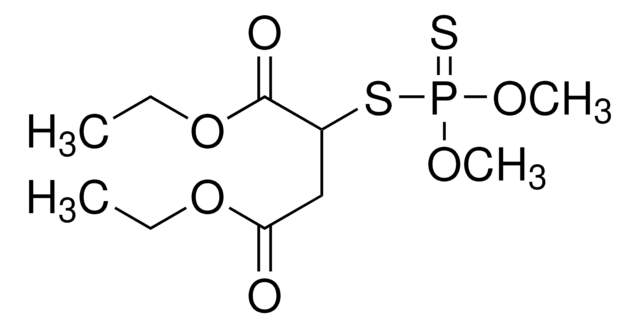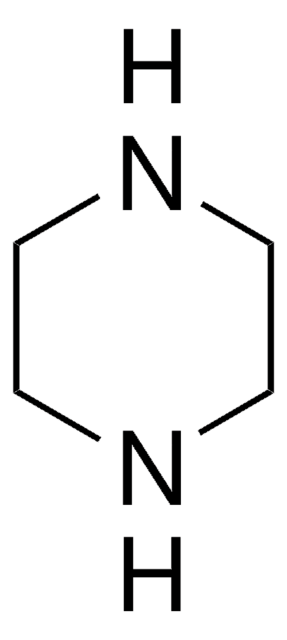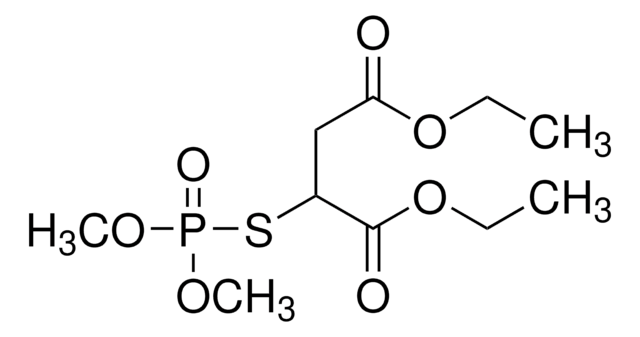M0120005
Malathion impurity A
European Pharmacopoeia (EP) Reference Standard
Synonym(s):
2-[[Methoxy(methylthio)phosphinyl]thio]butanedioic acid 1,4-diethyl ester, Diethyl (2RS)-2-[(methoxy)(methylsulfanyl)-S-phosphinothioyl]butanedioate
About This Item
Recommended Products
grade
pharmaceutical primary standard
API family
malathion
manufacturer/tradename
EDQM
application(s)
pharmaceutical (small molecule)
format
neat
storage temp.
−20°C
InChI
1S/C10H19O6PS2/c1-5-15-9(11)7-8(10(12)16-6-2)19-17(13,14-3)18-4/h8H,5-7H2,1-4H3
InChI key
LPQDGVLVYVULMX-UHFFFAOYSA-N
Looking for similar products? Visit Product Comparison Guide
General description
Application
Packaging
Other Notes
Related product
signalword
Danger
hcodes
Hazard Classifications
Acute Tox. 3 Oral
Storage Class
6.1C - Combustible acute toxic Cat.3 / toxic compounds or compounds which causing chronic effects
wgk_germany
WGK 3
flash_point_f
141.8 °F
flash_point_c
61 °C
Choose from one of the most recent versions:
Certificates of Analysis (COA)
Sorry, we don't have COAs for this product available online at this time.
If you need assistance, please contact Customer Support.
Already Own This Product?
Find documentation for the products that you have recently purchased in the Document Library.
Our team of scientists has experience in all areas of research including Life Science, Material Science, Chemical Synthesis, Chromatography, Analytical and many others.
Contact Technical Service



